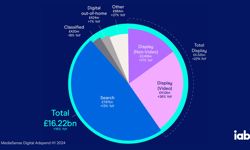The last of the UK’s independent distributors of any real scale – the competition is all owned by publishing houses – the company was brought down by a cash-flow crisis linked to low interest rates, a tough magazine market and banks’ current reluctance to extend credit.
MMC held about 2% market share in the UK, representing about 135 clients with 300-plus titles. Its 41 staff are believed to have been paid for the month of April but are out of pocket for time worked until the company went into administration on May 21. The amount of money owed to client publishers is expected to run into the millions; one client, David Hall Publishing, a fishing magazine specialist, says it alone is owed £300,000, a sum it does not expect to recover. MMC’s only tangible asset was its office in Woking, Surrey, worth an estimated £700,000. Several publishers are thought to have undelivered inventory suspended.
In business since 1988, MMC bought out medium-sized distributor Odyssey last year, a fact not thought to be linked directly to the cash-flow problem that brought the company down. And while the winding-down last year of the wholesaler Dawsons, owing money to MMC, affected cash-flow in the short term, it’s not thought to have left MMC in a fundamentally unstable position.
Rather, low interest rates are thought to have reduced already-tight margins. Distributors usually hold publishers’ money for a time, on which they earn interest. In the good days, that was worth 4-5% a year and was a significant source of cash. With interest rates close to zero now, that source of funds has evaporated. The usual Spring boost to revenue from collectables was delayed from March to May-June, and the company simply had insufficient cash to last until it could invoice for them. InPubWeekly understands that 90% of MMC clients were paid as normal on May 5, and that the company’s bank, RBS, several days later stopped the payment run and refused to extend further credit.
MMC handled many niche lifestyle titles, the smallest of which are likely to struggle to survive the cash-flow problems that MMC’s non-payment delivers them. “Some of the smaller ones will go to the wall, without question,” says David Hall, chairman of David Hall Publishing, which has moved its business to Seymour. “MMC were extremely nice people who had circumstances conspire against them.”
The big four distributors – Marketforce, COMAG, Frontline and Seymour – are not thought to be exposed in the same way as MMC was, backed by large publishing parent companies. MMC’s administrators, Sallyanne Pitt and Paul Clark, have invited potential buyers to come forward “without delay”. But there seems little likelihood of that; after all, other distributors stand to gain the business of MMC clients still in business and in need of a distribution partner anyway. One industry insider said they might lure publishers with promises of stop-gap help with cash-flow, provided they had sufficient cash to hand themselves.
One industry insider said: “The magazine marketplace is a tough place to be right now and I think with a market that’s in arguable terminal decline there will be an increased level of consolidation across all levels of the industry. Since the closure of MMC, Garnett Dickinson has merged magazine distributor Native Publisher Services. The company will be renamed Native PS Magazine Distribution.
David Garratt, former MD of COMAG and now director at Alliance Media, suggests the MMC closure might lead more publishers to work on subscription sales rather than newsstand, to boost cash-flow, or even to publish only online.
Brian Hill, managing director of publisher Mortons, an MMC client until about five years ago, says it’s a sorry situation for the industry, particularly smaller publishers. “It gave single-title publishers some real attention,” he says. “That’s not a criticism of the other distributors, but it must sometimes feel like you’re a very small fish in a big pond.”










